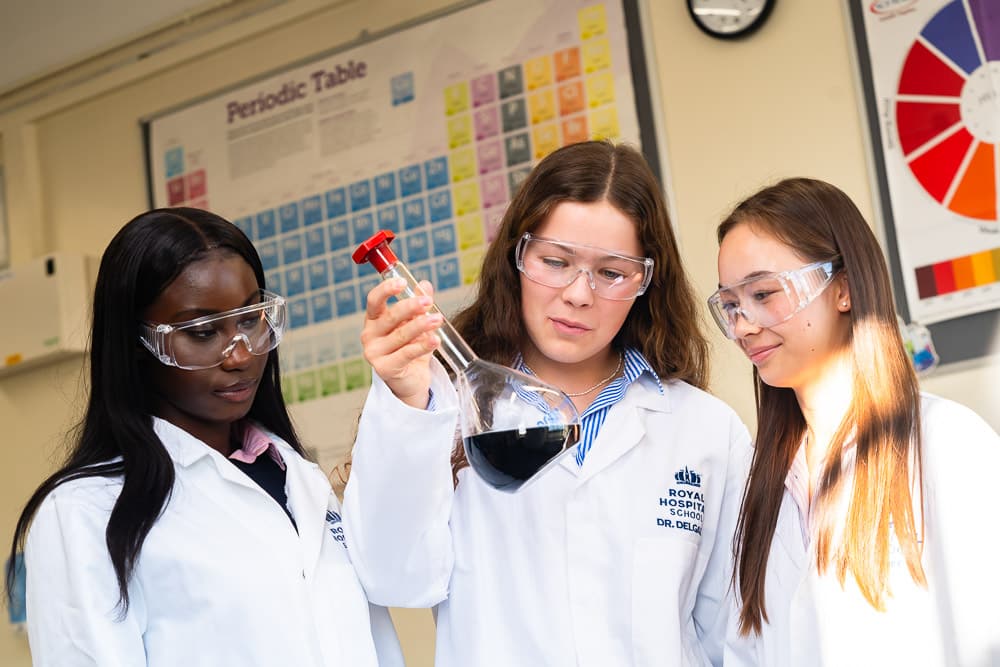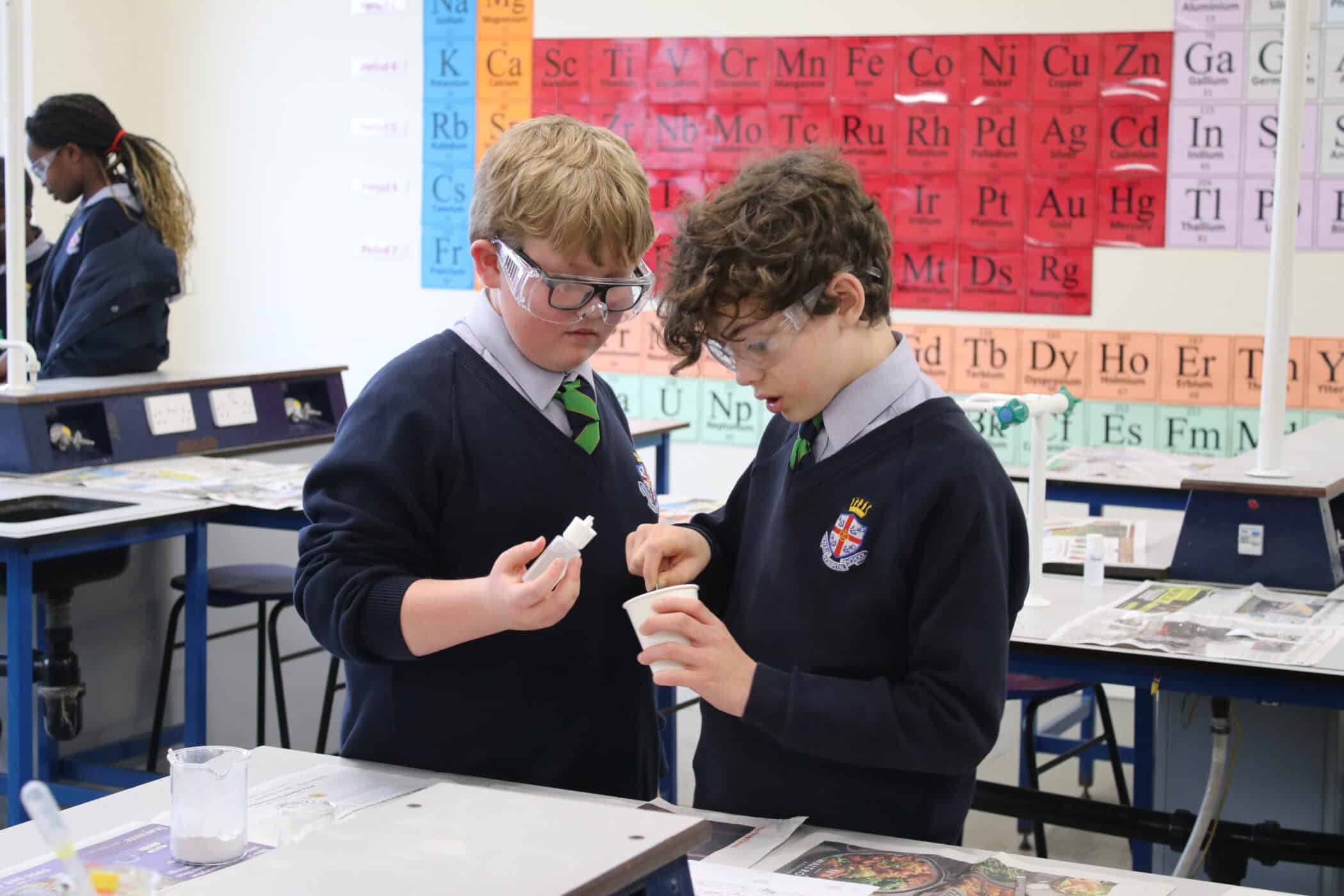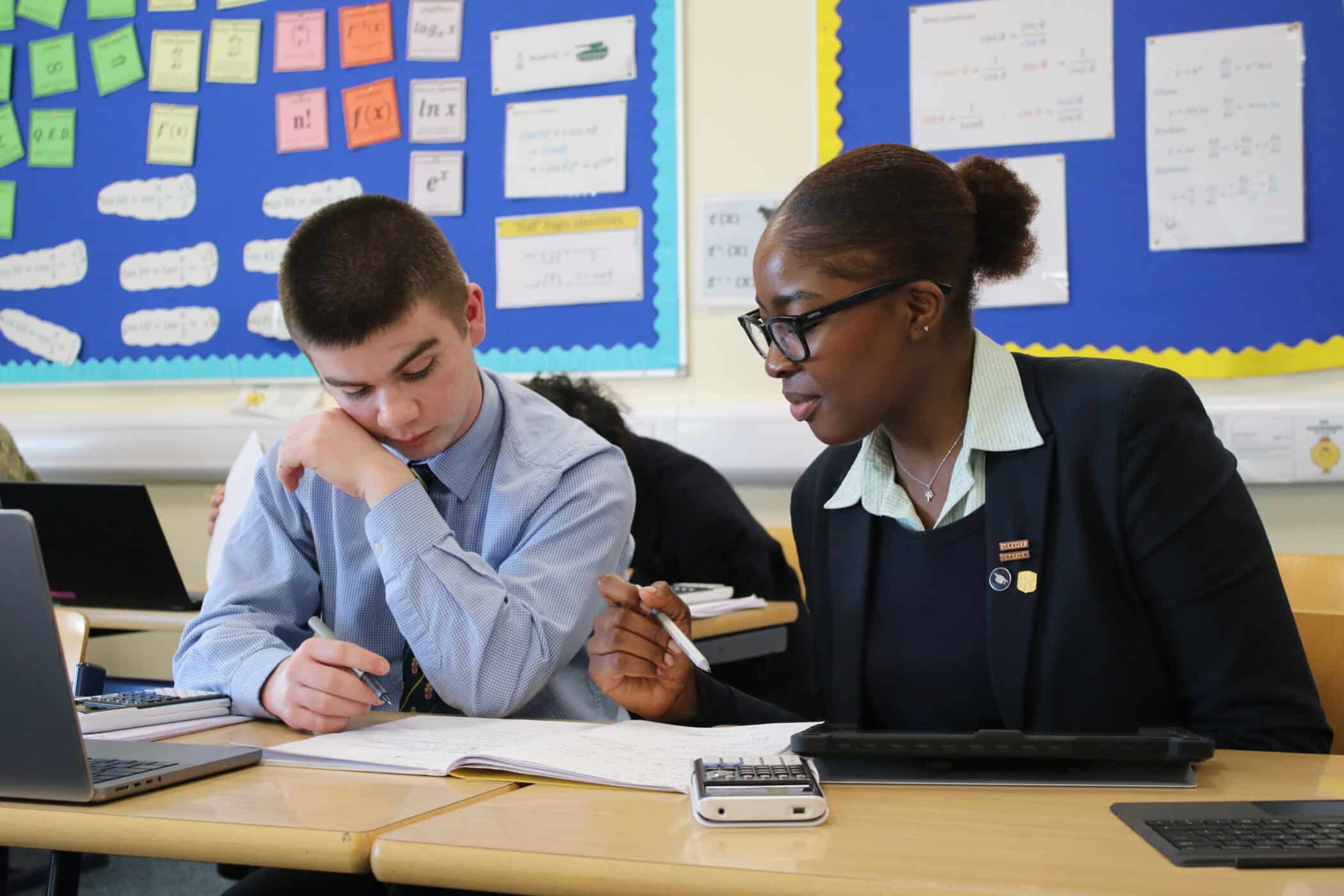Blog
The importance and impact of making STEM subjects more accessible

Beverly Maloney
STEM Lead and Housemistress at Royal Hospital School
Read the blog
In today’s rapidly evolving world, the significance of STEM, made up of the subjects Science, Technology, Engineering, and Mathematics, education cannot be overstated. Many educators are committed to making STEM subjects more accessible to all pupils, recognising the profound impact this has on their future and society at large.
The Role of STEM Education
STEM education is more than just a collection of subjects; it is a holistic approach to learning that fosters critical thinking, problem-solving, and innovation. These skills are essential in navigating the complexities of the modern world. By integrating STEM into the curriculum, pupils are equipped with the tools they need to tackle real-world challenges and drive technological and scientific advancements. For example, at RHS, we have achieved this through the introduction of STEM projects across many areas of the school.
Encouraging Inclusivity and Diversity
An important goal for STEM education is to make STEM subjects inclusive and accessible to all pupils, regardless of their background or abilities. Diversity in STEM fields leads to a richer exchange of ideas and more innovative solutions. Providing equal opportunities for all pupils to engage with STEM subjects helps to break down barriers and encourage a more diverse generation of scientists, engineers, and technologists. For example, every year at RHS, we host a celebration of STEM, ‘STEMFEST’, where pupils from all over the local area at additional schools are invited to join us and take part in interactive workshops. This event opens the STEM world not only to our RHS pupils but also to young people in our local area from Year 5 onwards.
Practical Applications and Real-World Impact
The practical applications of STEM education also can’t be overlooked. Through hands-on projects, competitions, and real-world problem-solving, pupils can see the tangible impact of their work. Pupils can participate in various national competitions, showcasing their innovative solutions to real-world problems. These experiences not only enhance their understanding of STEM concepts but also inspire them to pursue careers in these fields. For example, at RHS, Ellis, a Year 11 pupil, became a UK finalist in the Manufacturing Technologies Association’s TDI Challenge with his innovative birdfeeder design. Similarly, David, a Year 13 pupil, was a UK finalist in the Triumph Design Awards with his universal bike support system. These achievements demonstrate how accessible STEM education can empower pupils to excel and make significant contributions to their fields.



Developing Excellence in STEM
It is important to develop a comprehensive approach to foster STEM education. Although STEM represents the individual curriculum areas of Science, Technology, Engineering, and Maths, it is a firm belief that it is the collaboration between these subjects, alongside the rest of the curriculum, that truly engages pupils and builds a philosophy of education that mirrors real life.
Pupils can get involved with STEM challenges and projects, which provide them with opportunities to apply their knowledge in practical settings, encouraging them to pursue STEM careers. Additionally, schools can host events related to the STEM experience, enriching pupils and giving teachers new resources.
Teachers and mentors also play a crucial role in making STEM subjects accessible. Teachers can create an encouraging learning environment where pupils feel confident to explore, take risks, experiment and innovate. By fostering a culture of curiosity and resilience, pupils can overcome challenges and achieve their full potential.
Innovation and Everyday Impact
Promoting the idea that individuals can make an impact on the world we live in and that STEM-related subjects can play a major part in this is particularly important to all school curriculums and an idea we strongly promote at RHS. From the shoes we wear and the technology in our hands to the music we listen to and the games we play, engineering is at the heart of everything. It brings ideas to life, allows us to solve real-life problems, and turns dreams into reality. Whether you’re into sports, music, fashion, technology, or anything else, there’s a place in STEM for all to explore and develop a wide range of skills. Encouraging pupils to make their mark on the world and take part in activities and competitions to support this is essential to making STEM as accessible as possible.
The Future of STEM Accessibility
In order to keep STEM education accessible and beneficial for all, schools should continuously expand STEM programmes, introduce new and developing technologies and provide more opportunities for pupils to engage with these subjects. By doing so, the next generation of innovators and leaders will be in a place to shape the future.
Making STEM subjects more accessible is not just about improving academic performance; it is about preparing pupils for the future. As we continue to prioritise STEM education, we are confident that the next generation will be well-equipped to lead and innovate in their chosen fields.